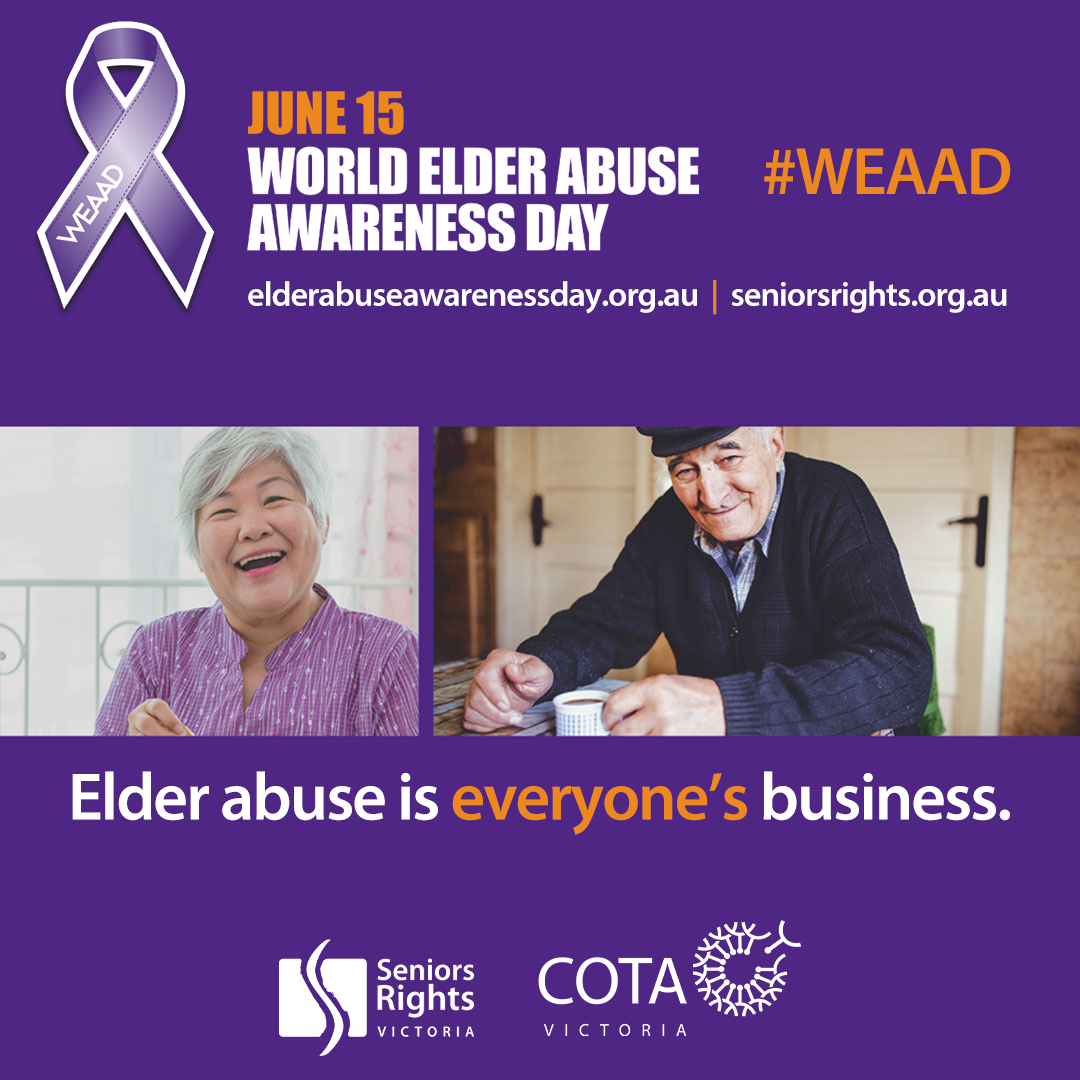The most recent study of elder abuse prevalence in Australia found that 14.8% of those 65 years and over had experienced at least one recognised form of elder abuse over the previous 12 months.
This suggests that 160,000 older Victorians are experiencing elder abuse each year to a level they are willing to identify to researchers.
At mecwacare, we are committed to ensuring the safety, dignity, and well-being of our elderly community members. Understanding how to recognise the signs of elder abuse, taking appropriate action, and knowing where to get help are essential steps in safeguarding our elderly loved ones.
Understanding elder abuse
Elder abuse can take many forms, including physical, emotional, financial, sexual, and neglect. It is crucial to recognise the signs to protect the elderly from harm. Here are some common indicators:
Physical Abuse:
- Unexplained bruises, cuts, burns, or injuries.
- Sudden changes in behaviour or fearfulness around certain individuals.
- Frequent hospital visits without reasonable explanations.
Emotional Abuse:
- Withdrawal from social interactions or activities.
- Unusual anxiety or depression.
- Verbal aggression or humiliation from caregivers or family members.
Financial Abuse:
- Unusual bank withdrawals or financial activity.
- Missing belongings or property.
- Unpaid bills despite having sufficient funds.
Sexual Abuse:
- Bruises around the breasts or genital area.
- Unexplained sexually transmitted infections (STIs).
- Reluctance to be left alone with certain individuals.
Neglect:
- Poor hygiene or malnutrition.
- Untreated medical conditions.
- Unsafe living conditions.
Taking action against elder abuse
If you suspect that an elderly person is being abused, it is important to take immediate action. Here are the steps you can follow:
Document the Evidence:
- Keep a detailed record of signs, symptoms, and incidents.
- Take photographs of any visible injuries.
- Note any changes in behaviour or financial irregularities.
Communicate:
- Have a gentle and private conversation with the elderly person.
- Ask open-ended questions to encourage them to share their experiences.
- Ensure they feel supported and believed.
Report the Abuse:
- Contact local authorities or elder abuse helplines to report your concerns.
- In Victoria, you can call the Seniors Rights Victoria helpline on 1300 368 821.
- If the situation is urgent or life-threatening, dial 000 immediately.
Seek Professional Help:
Reach out to healthcare providers, social workers, or legal advisors. They can offer guidance and support in managing and resolving the situation.
What to do when facing elder abuse
If you are in Victoria and are experiencing or at risk of elder abuse, please call the Seniors Rights Victoria helpline on 1300 368 821 or visit https://seniorsrights.org.au.
For nationwide assistance and to access additional resources in 20 different languages, call the Australian Human Rights Commission on 1800 ELDERHelp (1800 353 374) or visit https://humanrights.gov.au/elderabuse.
If it is an emergency, call 000.
At mecwacare, we are dedicated to fostering a safe and nurturing environment for our residents. By being vigilant and proactive, we can help prevent elder abuse and ensure that our elderly community members live with dignity and respect.
This World Elder Abuse Awareness Day, let us commit to standing up against elder abuse and protecting those who have given us so much.










